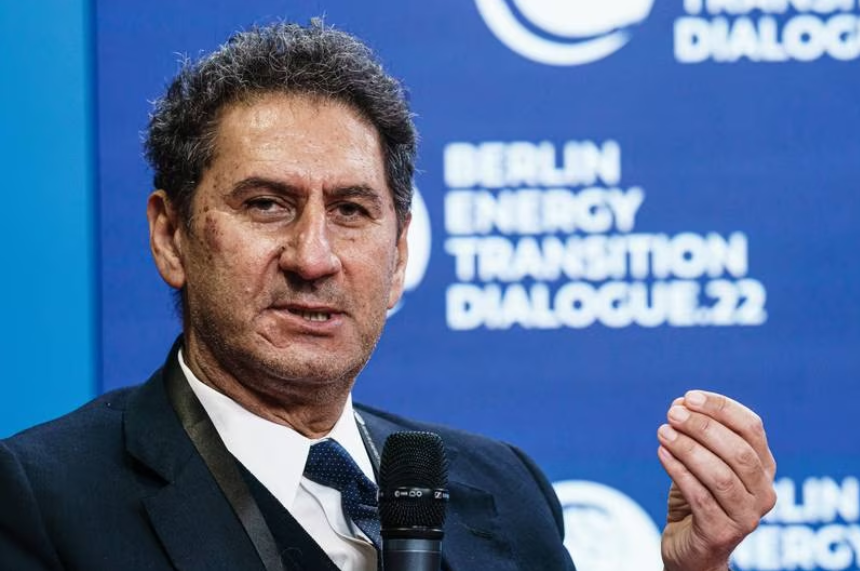
Francesco La Camera, director general of Irena, at an event in Berlin. EPA
The transition to renewable energy will remain steady in the long-term even as European countries scramble to increase their natural gas imports, the director general of the Abu Dhabi-based International Renewable Energy Agency (Irena) has said.
The switch will continue despite the continuing energy crisis, triggered by Russia’s invasion of Ukraine and exacerbated by chronic underinvestment in new oil and gas projects, Francesco La Camera told The National in an interview this week.
“We have not seen investment in new fossil fuel plants in [US or Europe] … they are trying to make the best use of what is already there by enhancing existing extraction,” said Mr La Camera.
European countries, faced with dwindling Russian exports, have boosted their liquefied natural gas imports from the US and Gulf countries.
As of December, the average gas storage filling level among EU member states was at 88 per cent.
“We at Irena never say that we have to stop the investment in [oil and gas] … we need to maintain a certain gas production capacity to feed the energy system,” said Mr La Camera.
Oil and gas upstream investment needs to increase and be sustained near the pre-coronavirus levels of $525 billion through 2030 to ensure market balance, according to the International Energy Forum.
Meanwhile, China and India, which set ambitious renewable energy targets for the next few decades, have boosted their imports of discounted Russian crude since the war broke out in February last year.
“Naturally, everyone in the short term is trying to get the best they can [and] if they can buy gas at a good price and not use coal, I think this could be an advantage in a way,” said Mr La Camera.
“I don’t think in the middle to long term the trajectory that we have discussed will change.”
Top crude importer China is expected to invest $90 billion in its solar photovoltaic supply chain between 2022 and 2027, more than triple the investment expected from the rest of the world combined, the International Energy Agency said in a report last year.
India, the world’s third-largest crude oil importer, aims to install 500 gigawatts of non-fossil fuel capacity by 2030 to meet half of its energy demand through renewables.
“They are making big efforts to go towards renewables and this trend will continue; there is no doubt,” said Mr La Camera.
Along with renewables, the increasing adoption of electric vehicles is considered crucial to net-zero efforts.
Based on current policies, natural gas demand will reach a plateau by the end of the decade while oil demand will “level-off” in the mid-2030s amid rising EV sales, the IEA said.
However, the mining of cobalt and lithium — critical minerals used in EV batteries — is known to have significant environmental costs.
“[Governments] need to put the right policy in place for the circular economy and push for new technologies,” said Mr La Camera.
“We are moving from rare minerals to minerals that are more [easily] available … naturally, we need to have mining that is conducted in a more sustainable way,” he said.
The world needs to double its renewable power targets for 2030 to achieve net-zero emissions, Irena said in a report in November last year.
Countries aim to install 5.4 terawatts of installed renewable capacity by the end of the decade, about half of the 10.8 terawatts of capacity required, according to Irena’s scenario that restricts temperature increases to 1.5C above pre-industrial levels.